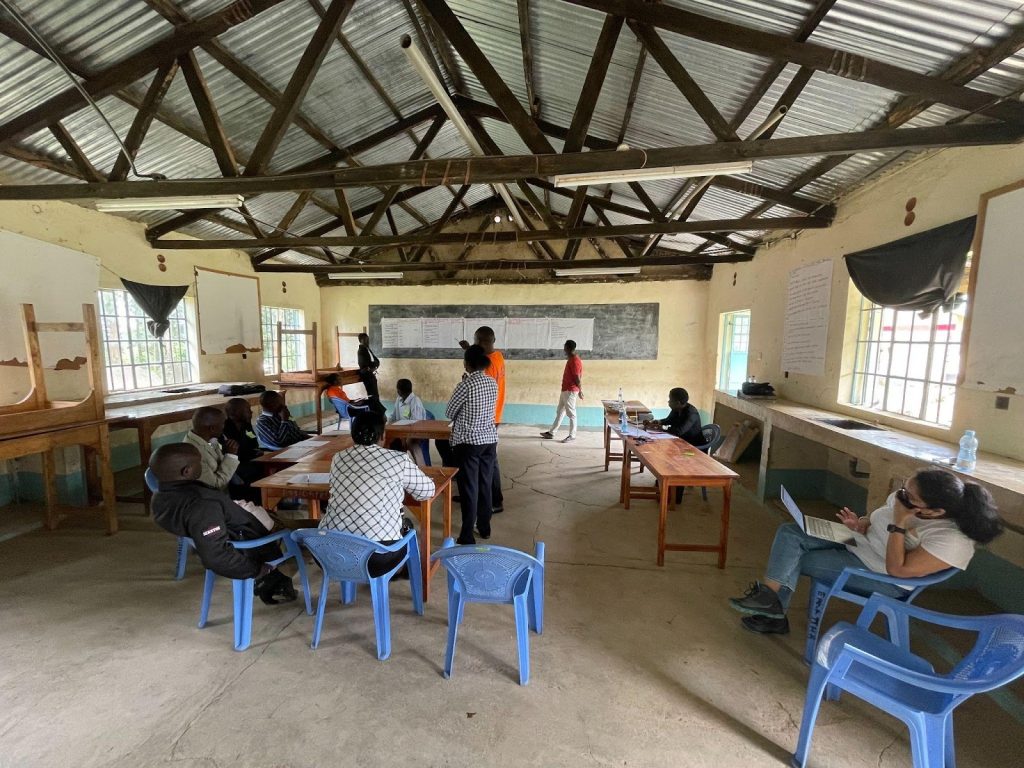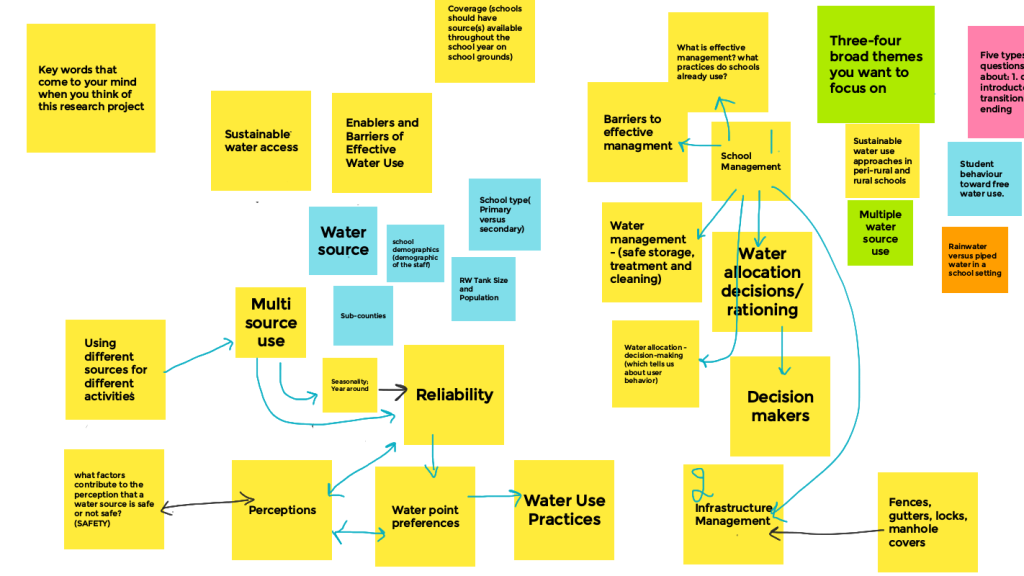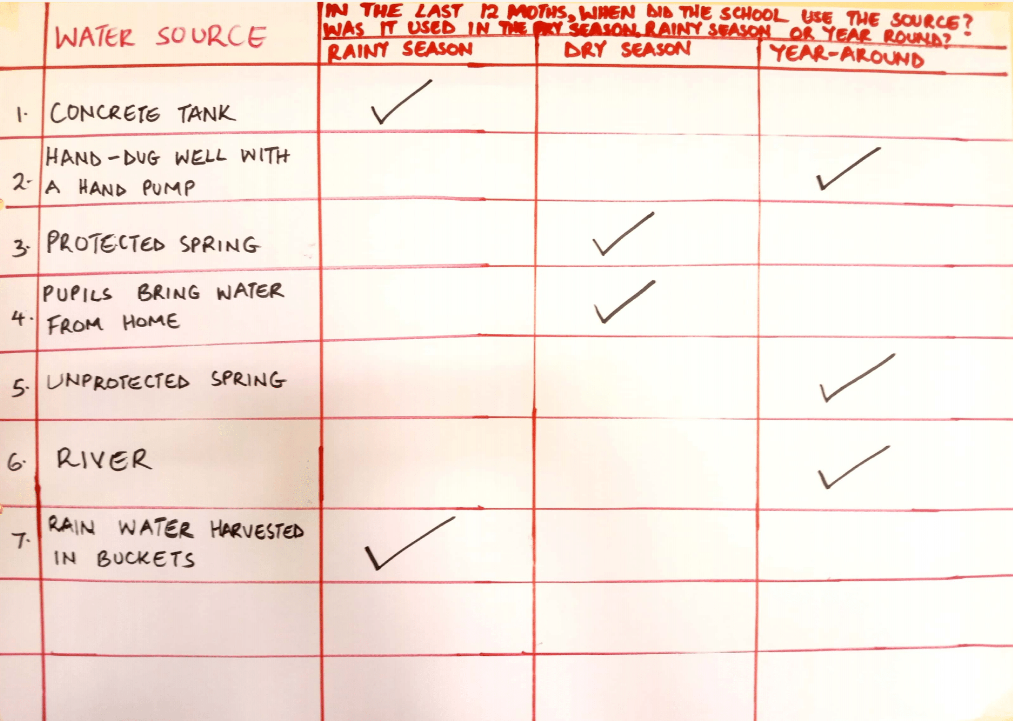What we learn together
The Power of Collaboration in Research: Unveiling New Insights
Introduction:
In our continuous pursuit of knowledge and improvement, The Water Project (TWP) has long relied on quarterly monitoring surveys to gather data on our water points. However, we recently embarked on a new venture by incorporating qualitative research for the first time. Our main goal was to gain a deeper understanding of the challenges and opportunities in our work to ensure that everyone in our program areas has access to clean drinking water.
Unlike quantitative research, which focuses on measuring and analyzing numerical data, qualitative research relies on gathering information through words, narratives, and observations. Qualitative research allowed us to hear directly from the people closest to the problem, giving them a platform to voice their concerns.
Our first foray into qualitative research focused on studying water access and management in Western Kenya schools. We initiated the study to understand the prevalence of any barriers that schools face in achieving reliable water access and how schools use and manage multiple water sources to meet their needs.
During this research project, collaboration emerged as a fundamental component enabling us to foster knowledge sharing, leverage the strengths of each team member, and address the complexities of our work in schools more efficiently.
The Power of a Collaborative Team in Research:
As we delved into our research project, we soon came face-to-face with the daunting challenge of tackling qualitative research for the first time. We realized that going at it alone would be an uphill battle, and we could use all the help we could get. That’s exactly what we did! We brought together a diverse team of talented individuals from our Program Team, Regional Service Hub, and partner organizations to tap into a treasure trove of knowledge, expertise, and skills.
The success of our research project hinged on the integral roles played by members of different teams on the ground who helped design the project. Our US-based Program Team and trusted partners came together to tackle critical decisions. We worked collaboratively to determine the research objectives, define the study’s scope, allocate the budget effectively, and identify the best tools to gather the necessary information. Each team member brought their unique strengths and expertise to the table.
Additionally, The Regional Service Hub provided invaluable insights into the local context and perspectives. Their deep understanding of the region helped us navigate through challenges such as defining the timeline for data collection, navigating the Institutional Review Board process, and obtaining the necessary permits to conduct research in Kenya. By harnessing the diverse strengths of our team players, we significantly improved the overall quality of our work.

Incorporating Collaboration in Research Design:
From the early stages of research design, involving both partners and team members was crucial. We initiated the study with a few brainstorming sessions, inviting input from local partners and seeking their buy-in.
We actively sought insights from the team members regarding their prior knowledge of schools in Western Kenya and their water consumption. We wanted to uncover any assumptions we had before commencing the research, ensuring an unbiased approach to the study. We posed questions such as: “What do we know about Western Kenya schools? What specific outcomes are we aiming to achieve through this study? How will this impact TWP’s existing and new projects?” This collaborative assessment allowed us to set realistic expectations and tailor our research methods accordingly.

Collaboration during Data Collection and Analysis:
Collaboration was also vital during our data collection and analysis phases. As the Regional Service Hub led the data collection efforts on the ground, regular communication became essential. We would connect over virtual calls to debrief after each data collection session and ensure that we were aligned in our methodological approach.
We embraced a participatory approach during data collection, utilizing flip charts as guided interview tools. This approach allowed the interviewees, including school administrators and water managers, to contribute their perspectives and insights actively.
As we transitioned from data collection to data analysis, collaboration remained paramount. We invited the Regional Service Hub, Program Team, and local partners to help us in interpreting the data, actively seeking their critical feedback to refine the findings further. Through this spirit of review and feedback, we were able to identify recommendations that will help us build better water systems in Western Kenya schools to ensure reliable, clean drinking water all year around. This collaborative analysis and interpretation of our data not only bolstered the credibility of our results but also fostered a collective learning and growth mindset among all involved.
Conclusion:
Through the analysis, we learned that:
- Schools rely on multiple water sources (both protected and unprotected) to meet their demands;
- They face various challenges to effective rainwater tank management, such as seasonality, water quality issues, vandalism, community use, etc.; and
- Multiple factors influence schools’ water source preferences, such as water quality, physical burden, accessibility, water availability, and intended use (for example, a school might use rainwater tank water for drinking and river water for cleaning classrooms).

In conclusion, the power of collaboration throughout our research study cannot be overstated. Through open communication and shared decision-making, we fostered a sense of collective ownership, enabling us to navigate challenges, adapt to new insights, and ultimately grow as an organization.
We are committed to integrating qualitative research into our ongoing work in Western Kenya. Currently, we are working on a Spring Access and Management Study, where qualitative research methods will be employed to comprehend challenges associated with spring management. We firmly believe that by incorporating qualitative research, we can continue to make meaningful strides toward addressing water-related challenges in the region.
Our Regional Service Hub (RSH) in Western Kenya, under the leadership of Humphrey Buradi, serves as a central facility offering essential maintenance and repair services for our water points. It boasts a state-of-the-art water quality testing laboratory, a dedicated team for monitoring and evaluation, and a research division, ensuring comprehensive and efficient support for the region’s program initiatives.
Home More Like ThisTweet